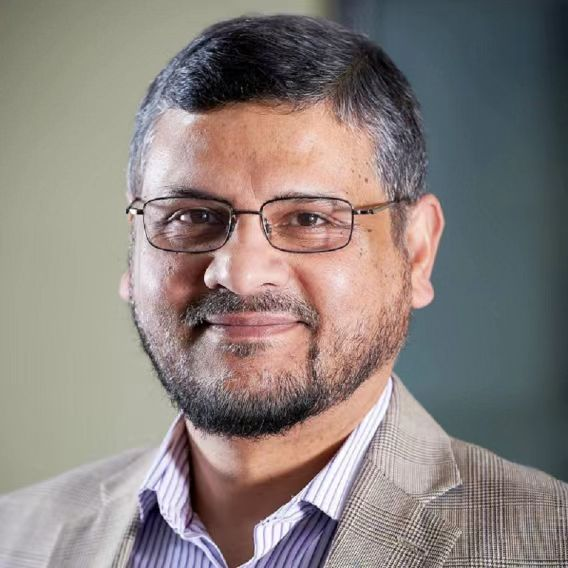一、主办单位:永利yl23411集团官网
二、承办单位:浙江碳中和创新研究院
三、论坛时间:2023年7月19日 14:30-16:30
四、论坛地点:莫干山校区协同中心1号楼A203
五、报告简介:
报告一题目:Water, Water Everywhere, Not Any Drop to Drink(水,到处都是水,一滴也不能喝)
报告内容:
Improved standards of living require increasing amount of freshwater. Consequently, in the last 50 years, a sharp increase in the volume of industrial effluents (and sewage) being generated and disposed of into rivers and oceans is witnessed causing significant harm on our ecosystem and health. Although the Ancient Mariners' rime: Water, water everywhere/Not any drop to drink was referring to 97% of the planet's water (seawater), vast amount polluted river streams around the world would fit equally to this rime.
Climate change also results in river water levels falling in many parts of the world to a dangerous level impacting agriculture, transportation of essential commodities, etc. In recent years, water reservoirs in Spain were running at 40% capacity, Italy had to declare state of emergency for areas surrounding the river Po impacting 60% of the crops, trucks were used in parts of France and Italy to supply drinking water. This scenario is not uncommon in many parts of the world now.
Currently the demand for freshwater is increasing by 64 billion cubic meters a year while the world’s population is growing by roughly 80 million a year. 11% of the world population do not have clean water close to home. Globally, about 2 billion people use a drinking water source contaminated with faeces. Water has been a device used for religious conflict and regional and local battles leading to waves of migration to other countries. Global thirst will turn million into water refugees. The disputes over water will inevitably become more common, as 220 river basins globally are shared by two or more countries.
Interestingly, UN report estimated that three out of four jobs that make up the global workforce are either heavily or moderately dependent on water. This means that water shortages and problems of access to water and sanitation could limit economic growth and job creation in the coming decades. The report also highlights that water and jobs are inextricably linked to economic, environmental or social perspective.
What is the solution? Securing sustainable water (and food, and energy) supply is more important challenges today for scientists and engineers than ever before. Therefore, managing these resources carefully is not only a localised problem but globalised too. The management of water includes (a) cost-effective and sustainable production of freshwater via water treatment of river or reservoir water or via desalination of seawater (b) wastewater treatment and re-use (c) efficient and cost-effective water network for distribution (d) effective use of water in agriculture and industries and (e) water demand management.
This lecture will highlight these global issues around the world and will reflect on potential technical solution of the water management issues from Process Systems Engineering perspective.
主讲嘉宾介绍:

Iqbal M. Mujtaba is a Professor of Computational Process Engineering and is currently Associate Dean (Learning, Teaching & Quality) of the Faculty of Engineering & Informatics at the University of Bradford. He was Head of the School of Engineering at the University of Bradford from 2016-2018. He obtained his PhD from Imperial College London in 1989. He is a Fellow of the Royal Academy of Engineering, Fellow of the IChemE, a Chartered Chemical Engineer. He was the Chair of the European Committee for Computers in Chemical Engineering Education from 2010-2013 and the Chair of the IChemE's Computer Aided Process Engineering Special Interest Group from 2012-2019. He is currently an Associate Editor for South African Journal in Chemical Engineering and Chemical Product & Process Modelling and an Editorial Board Member of Desalination, Journal of Water Process Engineering, Processes, Energies.
Professor Mujtaba leads research into dynamic modelling, simulation, optimisation and control of batch and continuous chemical processes with specific interests in distillation, industrial reactors, refinery processes, desalination, wastewater treatment and crude oil hydrotreating focusing on energy and water. He has managed several research collaborations and consultancy projects with industry and academic institutions in the UK, Italy, Hungary, Malaysia, Thailand, India, Qatar, South Africa, Iraq, Algeria, China, Libya, Jordan, Bangladesh, Bahrain and Saudi Arabia. He has published over 390 technical papers and has delivered more than 75 invited lectures/seminars/plenaries/keynotes/short courses around the world. He has supervised 41 PhD students to completion and is currently supervising 8 PhD students. He is the author/co-author of (1) 'Batch Distillation: Design & Operation' (textbook) published by the Imperial College Press, London, 2004 (2) ‘Wastewater treatment by Reverse Osmosis’ published by CRC Press, 2020 (3) ‘Desalination technologies: Design & Operation’, Elsevier, 2022. He is one of the co-editors of the books (1) 'Application of Neural Networks and Other Learning Technologies in Process Engineering', Imperial College Press, London, 2001 (2) 'Composite Materials Technology: Neural Network Applications' CRC Press, 2009, (3) 'The Water-Food-Energy Nexus', CRC Press, 2017, (4) ‘Water Management: Social & Technological Perspective’, CRC Press, 2018.
报告二题目:Systems Engineering for Carbon Capture, Utilisation and Storage (碳捕集、利用和封存技术的系统工程研究)
报告内容:
The Seminar will start with an introduction to Systems Engineering, followed by motivations of our research. The main part will be our research on carbon capture and transport in the context of Carbon Capture, Utilisation and Storage (CCUS) for Power Plants. Then the topic will be extended to our current efforts in CCUS for petro-chemical manufacturing (e.g. ethylene plants). We also investigate how to apply Artificial Intelligence techniques for modelling, optimisation and control in CCUS.
主讲嘉宾介绍:

Professor Meihong Wang(王美宏教授)leads Process and Energy Systems Engineering Research Group at University of Sheffield, UK with expertise in modelling, optimization and control for power plants, carbon capture utilisation and storage (CCUS), energy storage and bio-energy.
He joined Centre for Process Systems Engineering (CPSE) at Imperial College London and UCL in 1999. He worked at Alstom Power, Cranfield University and University of Hull from 2004 to 2016. He has been investigators in 25 research projects (as PI or Co-I) worth over £20 million from UK Research Councils, European Commission and Industry.
Prof Wang has published over 200 papers. One of his publications was awarded Ludwig Mond Prize 2014 by IMechE. He was joint winner of Nigeria Prize for Science 2019 (the most important prize in the African Continent). A research project on intensified carbon capture led by Prof Wang was runner-up in IChemE Global Award 2019 (Energy Category). He was Siemens PSE Model-based Innovation (MBI) Prize Winner 2022.

 校历
校历 邮箱
邮箱 EN
EN

 浙公网安备
浙公网安备